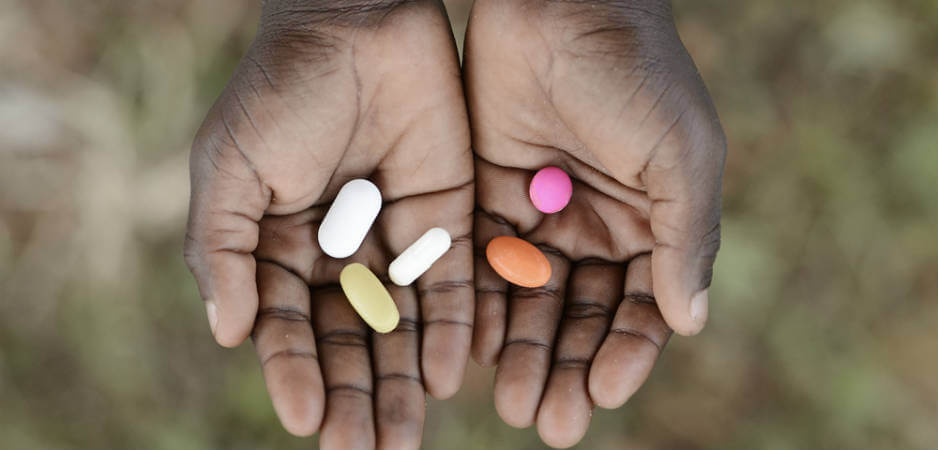Nigeria’s health industry struggles on despite the odds.
In order to understand the full extent of Nigeria’s health crisis, all you need to do is walk into any hospital in the heart of Lagos or any city across the country. What you will see is the real-life meaning of a cat having nine lives.
Nigerians have learned to survive by going through the motions when it comes to the provision of health care. With patients in dire need of services and health practitioners in dire need of rest, the whole system mirrors what you would call a colossal misdirection of fate. The prayers of ordinary Nigerians are directed toward the betterment of the situation in this critical industry and, as a matter of fact, of most other public sectors. But with maternal mortality rate as high as 560 per 100,000 live births, under-5 mortality at 117 per 1,000 live births, and overall mortality rate of 12.7 deaths per 1,000 people, these prayers seem rightly justified.
Some of the reasons for the high death rate include the lack of funds, both from the government and among the general population, with over 60% of people living below the poverty line of $1 per day. The troubling part is that despite this widespread absolute poverty, over 90% of payments for health care are out-of-pocket, with concerned doctors often contributing the outstanding payment for patient care. With health insurance virtually nonexistent across the country, out-of-pocket payments have severe consequences for health care access and utilization and are especially catastrophic for the poor. According to the 2010 World Health Report, “millions of people cannot use health services because they have to pay for them at the time they receive them. And many of those who do use services suffer financial hardship, or are even impoverished, because they have to pay.”
In Nigeria, health care is seemingly partitioned, and while the rich can of course get excellent services from top-notch private hospitals, the poor have to resort to the relatively affordable government hospitals, where they sleep in the hallways while their relatives are receiving care. Government officials visit these only on commissioning and during unavoidable public events, but never to be treated. Although these institutions provide relatively affordable care when compared to privately-owned hospitals, the level of care provided is often below par.
Nonetheless, the poor flock to these institutions because this is all they can afford. In fact, most of the doctors who work in these public institutions own private practices where they provide a high standard of care while doing very little in these government institutions, most of which are dilapidated.
Why does it have to be this way? Take for example the moral quagmire of a doctor who finds him or herself bound by hospital policies not to attend to patients, even in cases of dire emergencies, simply because they are unable to provide down payment. Or think about how impossibly frustrated a health professional must feel when he or she cannot perform a simple procedure because of the lack of funds to buy materials and basic equipment needed. This is not a situation someone in the developed world would ever find oneself in.
Or how about parents watching their 7-year-old son die of Burkitt’s lymphoma because they cannot afford chemotherapy, or the entire family crying at the ward’s doorway because the mother of the household is slipping away through the tight ropes of breast cancer as it ravages her body because there is no money for either surgery or chemotherapy? We don’t even need to go as far as talking about radiotherapy: Only two radiotherapy machines are working in the entire country.
No one is more befuddled than the 16-year-old pregnant girl who is not granted permission to go to the hospital without her 47-year-old husband’s knowledge and, therefore, she might end up losing her baby due to obstructed labor. Even if she were to defy orders, you can be guaranteed that she would lack the means to settle her hospital bills.
Yet the Nigerian health sector has managed to shoulder its responsibilities, albeit shakily, mostly because these shoulders have been hardened by time and spite. Still, medical professionals are churned out of the system on an almost daily basis, totaling over 2,500 annually, but only a limited number will practice in the country. And having been born with a mentality that embraces struggle, Nigerians try as much as possible to make do with whatever little materials in their possession — even if surgery has to be performed with the aid of a lantern in a hot theater without scrubs and only a pair of gloves serving as the precautionary measure, in extreme cases.
Somehow, the Nigerian health sector stays alive, in spite of all this. It stays alive because this cat, you see, has nine lives.
The views expressed in this article are the author’s own and do not necessarily reflect Fair Observer’s editorial policy.
Photo Credit: Riccardo Mayer / Shutterstock.com
Support Fair Observer
We rely on your support for our independence, diversity and quality.
For more than 10 years, Fair Observer has been free, fair and independent. No billionaire owns us, no advertisers control us. We are a reader-supported nonprofit. Unlike many other publications, we keep our content free for readers regardless of where they live or whether they can afford to pay. We have no paywalls and no ads.
In the post-truth era of fake news, echo chambers and filter bubbles, we publish a plurality of perspectives from around the world. Anyone can publish with us, but everyone goes through a rigorous editorial process. So, you get fact-checked, well-reasoned content instead of noise.
We publish 3,000+ voices from 90+ countries. We also conduct education and training programs
on subjects ranging from digital media and journalism to writing and critical thinking. This
doesn’t come cheap. Servers, editors, trainers and web developers cost
money.
Please consider supporting us on a regular basis as a recurring donor or a
sustaining member.
Will you support FO’s journalism?
We rely on your support for our independence, diversity and quality.








Commenting Guidelines
Please read our commenting guidelines before commenting.
1. Be Respectful: Please be polite to the author. Avoid hostility. The whole point of Fair Observer is openness to different perspectives from perspectives from around the world.
2. Comment Thoughtfully: Please be relevant and constructive. We do not allow personal attacks, disinformation or trolling. We will remove hate speech or incitement.
3. Contribute Usefully: Add something of value — a point of view, an argument, a personal experience or a relevant link if you are citing statistics and key facts.
Please agree to the guidelines before proceeding.